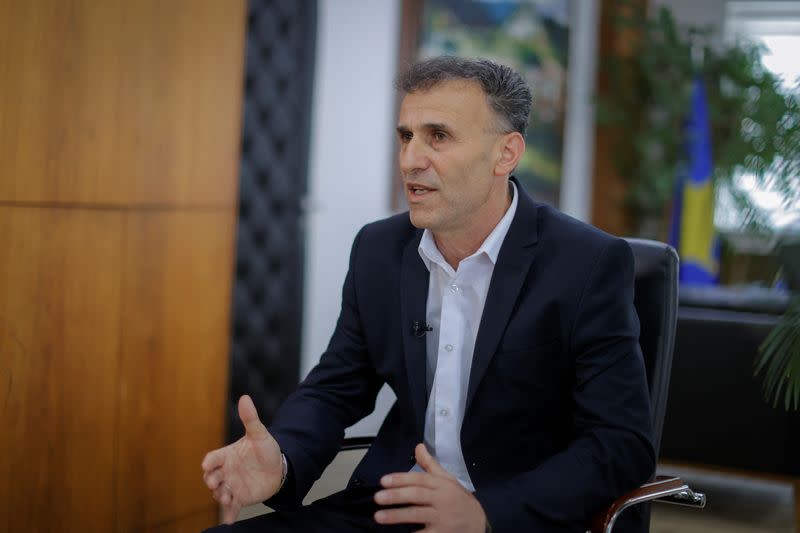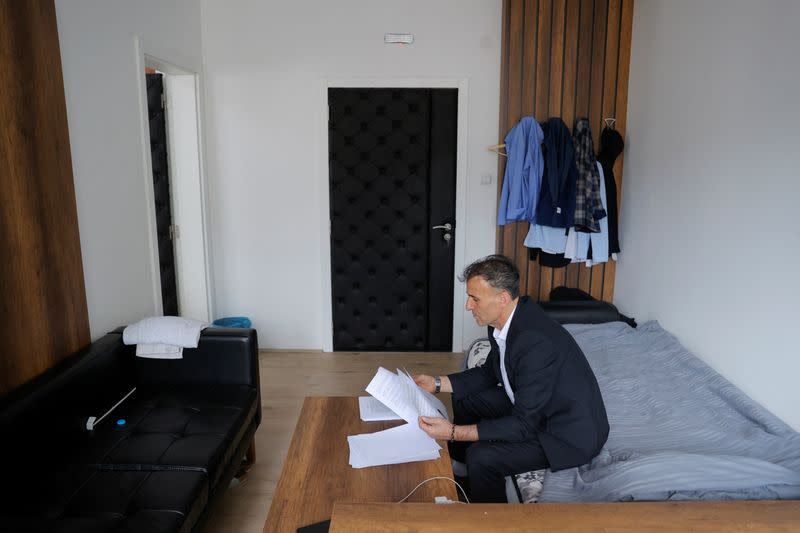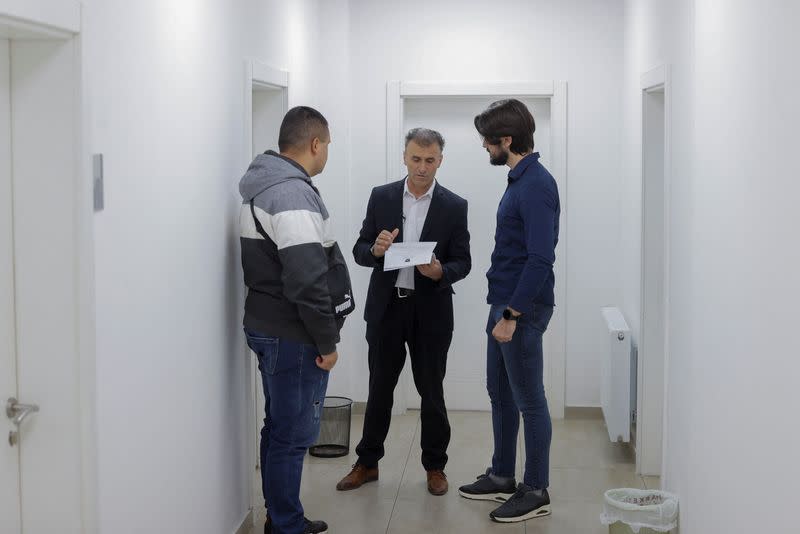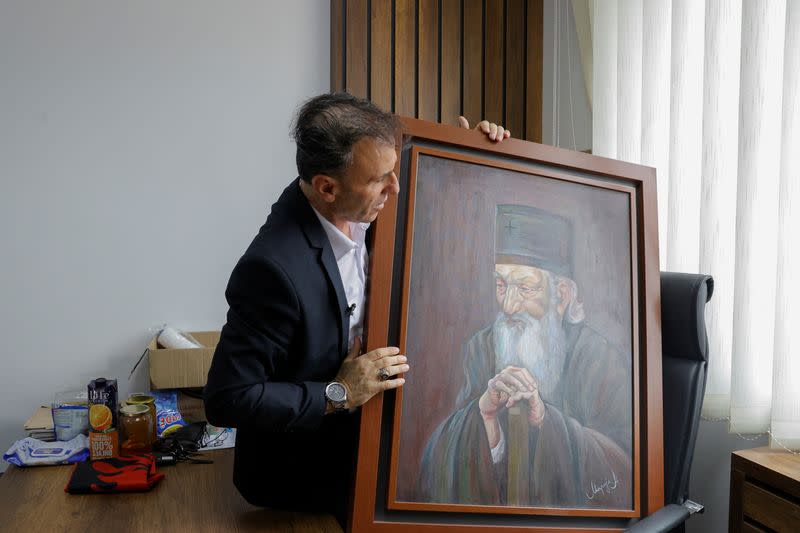Small-town mayor is caught in north Kosovo tensions
By Fatos Bytyci
LEPOSAVIC, Kosovo (Reuters) - Meet the small-town Kosovo mayor who is rejected by most inhabitants of his municipality and who is trapped amid tensions between Albanians and Serbs that have bubbled over into sporadic violence this year.
Lulzim Hetemi, the ethnic Albanian mayor of Kosovo's northern municipality of Leposavic, has lived and slept in his office since a month after he was elected in April, guarded by NATO troops and Kosovo special police.
Hetemi, a beekeeper, was elected with only 100 votes in an election that was boycotted by ethnic Serbs who are a minority in Kosovo as a whole, but who make up more than 97% of the total population of Leposavic.
While ethnic Albanians comprise the great majority of Kosovo's 1.8 million people, 50,000 Serbs in its north reject Kosovo statehood and see Belgrade as their capital, 15 years after Kosovo declared independence following a guerrilla uprising. Serbia does not recognise Kosovar independence.
Unrest in the north intensified after ethnic Albanian mayors took office in the Serb-majority area, a move that led the U.S. and its allies to rebuke Pristina. The Serb population had boycotted the elections, which took place in four northern municipalities after their mayors resigned in a long-running dispute over car registrations.
The northern region has seen the worst violence this year since independence, culminating late in September when armed Serb gunmen attacked police in the village of Banjska. One police officer and three gunmen died.
Soon after Hetemi took his oath of office, he said violent Serb protesters surrounded his office calling on him to leave. Hetemi refused, and says he has stayed in the building since May 29 without going back to his home for a single day.
"Who has a desire to stay in an office and sleep in chairs?," Hetemi said, describing his first days of isolation.
"When I was running for the mayor I had no idea whether Serbs will pull out of the election race and do such a manoeuvre as they did."
He later found a bed to replace the chairs and sleeps in a room attached to his office where he meets international envoys and NATO officials who are trying to prevent any violence and find a solution for fresh elections.
Business suits hang from the wall and there are three bottles of honey on top of a table, one almost empty.
The former municipal staff in Leposavic have refused to serve an Albanian mayor and they have been replaced by 75 other workers, who are also Serbs.
RESPECTING PREVIOUS ADMINISTRATION
Hetemi said he had been careful not to touch anything belonging to the previous administration, including several dozen bottles of alcoholic drinks.
"We have not touched anything, not their booze, books, Serbia's flags nor their paintings," Hetemi said, showing three boxes with Serbian flags and other symbols.
"When they will be back they will find everything as they left because we don't want to destroy anything."
Outside, U.S. soldiers who said they were from Texas and are part of the NATO force in Kosovo, were eating breakfast while stray dogs hoped for leftovers. Hetemi, watching them from the third floor, goes out daily on a terrace to get fresh air and see the town.
Hetemi said he is ready to end his mandate when new elections are called, but there is still no agreement on that in EU-mediated negotiations between Kosovo Serbs and the governments of Serbia and Kosovo.
In one sign of progress, local residents have been seeking the mayoral services in order to register their cars. Kosovar Prime Minister Albin Kurti's government has set a Dec. 15 deadline for around 10,000 motorists to register their cars with Kosovo numbers or face heavy penalties.
For years, many ethnic Serbs have refused to register vehicles with Kosovo car plates, using their own system instead which is seen as illegal by Pristina.
(Reporting by Fatos Bytyci; Editing by Frances Kerry)





